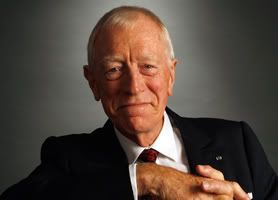
Why I love the Swedes.
What's the nature of the dispute over "heat," Klonny? Is one of you supporting "heat" over "heated" as the past tense? Or is it "het?" I don't think I've ever heard anyone use anything other than "heated."klondike wrote:Mrs. Klondike & I have carefully nurtured, 15-yr-old disputes over the correct past tense for the verb: "heat", and the plural form for the noun: "roof".
Bingo! "Het", if not only correct way to say it, is at least the superior form . . . you know, like dreamt, & leapt! And I will not give-in on this one!!jdb1 wrote:
What's the nature of the dispute over "heat," Klonny? Or is it "het?"
Think of it in terms of the remarkable fluidity and expressiveness of the English language. Even the United Federation of Planets uses it as their primary means of communication, after all.
klondike wrote:Bingo! "Het", if not only correct way to say it, is at least the superior form . . . you know, like dreamt, & leapt! And I will not give-in on this one!!jdb1 wrote:
What's the nature of the dispute over "heat," Klonny? Or is it "het?"
Think of it in terms of the remarkable fluidity and expressiveness of the English language. Even the United Federation of Planets uses it as their primary means of communication, after all.
As for UFP preference, yes, Judith, I know, it has indeed universalized English, but I've always believed that the Capellans would have been much more comfortable dealing with Gaelic!
Not surprising, Ms. Fan. The 18th Century speech patterns of Lancashire, Yorkshire, and Scots-inhabited Ireland are still in use (in some places intact) in isolated areas of New England and the American Appalachians and Ozarks. That's how such grammatical uses have survived in this country.charliechaplinfan wrote:I'm right in the heart of 'het up' country. I thought I had the answer straight off until I asked my husband who is from a different part of Lancashire and we disagreed. So I googled it.
het spelt et means eaten, et up means eaten up. What I thought not Hubby
Don't be too sure, Annie; when the typical adult gets excited (or agitated, or angry, or startled), it's usual for his/her body temp to spike up 3 - 7 degrees, sometimes for up to ten minutes, or more; not to mention brief elevations of 10 -20 points in pulse, respiration & blood pressure, all jump-started by the heart being suddenly drenched in adrenalin.mrsl wrote:I heard some of the old timers saying something like "Now, don't get all het up about it", meaning don't get excited about something, it had nothing to do with heating or temperature.
Anne